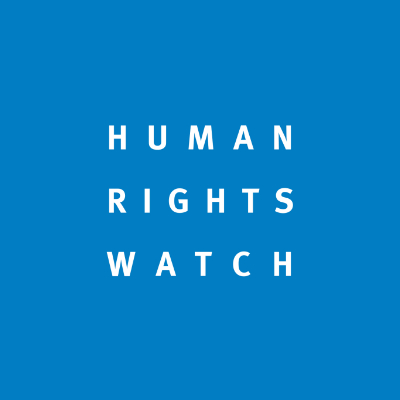 Human Rights Watch Article Rating
Human Rights Watch Article RatingGroups Urge Congress: Don't Compromise on Ending Qualified Immunity for Police Abuse
- Bias Rating
-94% Very Liberal
- Reliability
N/AN/A
- Policy Leaning
-94% Very Liberal
- Politician Portrayal
N/A
Continue For Free
Create your free account to see the in-depth bias analytics and more.
Continue
Continue
By creating an account, you agree to our Terms and Privacy Policy, and subscribe to email updates. Already a member: Log inBias Score Analysis
The A.I. bias rating includes policy and politician portrayal leanings based on the author’s tone found in the article using machine learning. Bias scores are on a scale of -100% to 100% with higher negative scores being more liberal and higher positive scores being more conservative, and 0% being neutral.
Sentiments
N/A
- Liberal
- Conservative
| Sentence | Sentiment | Bias |
|---|---|---|
Unlock this feature by upgrading to the Pro plan. | ||
Reliability Score Analysis
Policy Leaning Analysis
Politician Portrayal Analysis
Bias Meter
Extremely
Liberal
Very
Liberal
Moderately
Liberal
Somewhat Liberal
Center
Somewhat Conservative
Moderately
Conservative
Very
Conservative
Extremely
Conservative
-100%
Liberal
100%
Conservative

Contributing sentiments towards policy:
58% : An employee's violation of the Fourth Amendment, for instance, would result in an employer's liability, if the victim happens to die, while the exact same violation by another employee would not result in any liability if the victim gets "lucky."56% : That kind of policy is anathema to our system of government, under which law enforcement must respect and protect every individual's constitutional rights in their entirety at all times.
53% : The proposed limits on employer liability that are being considered would have a particularly broad and severe impact on lawsuits challenging officers who violate the First Amendment and use excessive force during protests -- like the officer misconduct that so many journalists, protesters, and bystanders experienced during last summer's massive demonstrations against police abuse and violence, disproportionately against Black and Brown people.
49% : Handmade cardboard protest signs imploring Congress to "End Qualified Immunity" became a familiar sight, amplifying the cries of the thousands who have experienced direct harm at the hands of law enforcement.
45% : Despite the clarity of this message, recent media reports indicate that the negotiations over the George Floyd Justice in Policing Act have been obstructed by a small number of law enforcement groups that are using it as an opportunity to advance proposals that would continue to insulate officers from accountability when they violate the law.
45% : The narrow employer liability proposal would mean that law enforcement agencies would be shielded from liability whenever officers kidnap protesters while walking on city streets and bundle them into unmarked vans;[9] unlawfully attack and arrest journalists,[10] as well as legal observers and protesters;[11] unlawfully arrest people trying to video-record[12] public police activity; and unlawfully arrest people because the police are offended by the content of their speech.[13]
43% : Re: Coalition Letter Urging Congress Against Strengthening Qualified Immunity and Limiting Employer Liability for Law Enforcement Agencies
43% : Despite the willingness[3] of major law enforcement groups to come to the bargaining table, the vocal objections of a small number of law enforcement groups have derailed needed reforms to current barriers for law enforcement accountability.
42% : In addition, at least one Senator involved in the negotiations has suggested[2] that only law enforcement agencies should be held liable -- not officers -- for the acts of their officers, and only in cases involving death and the most serious bodily injury, with no recourse for the victims of other forms of brutality;
39% : Unless the course is corrected, the Senate bill that comes out of these negotiations may take us backwards by perpetuating or increasing the already stiff legal barriers to holding law enforcement accountable for violating peoples' constitutional rights.
39% : Any proposal to expand employer liability only in cases of serious bodily injury and death would undermine the twin purposes of Section 1983, leaving victims of the most common forms of police abuse without a remedy whenever qualified immunity applies and leaving law enforcement without a corollary incentive to err on the side of protecting many rights.
23% : violations of First Amendment rights, including religious liberties; intrusions on privacy and dignity; sexual abuse; and other unconstitutional conduct by law enforcement that does not meet these narrow parameters.
*Our bias meter rating uses data science including sentiment analysis, machine learning and our proprietary algorithm for determining biases in news articles. Bias scores are on a scale of -100% to 100% with higher negative scores being more liberal and higher positive scores being more conservative, and 0% being neutral. The rating is an independent analysis and is not affiliated nor sponsored by the news source or any other organization.





















